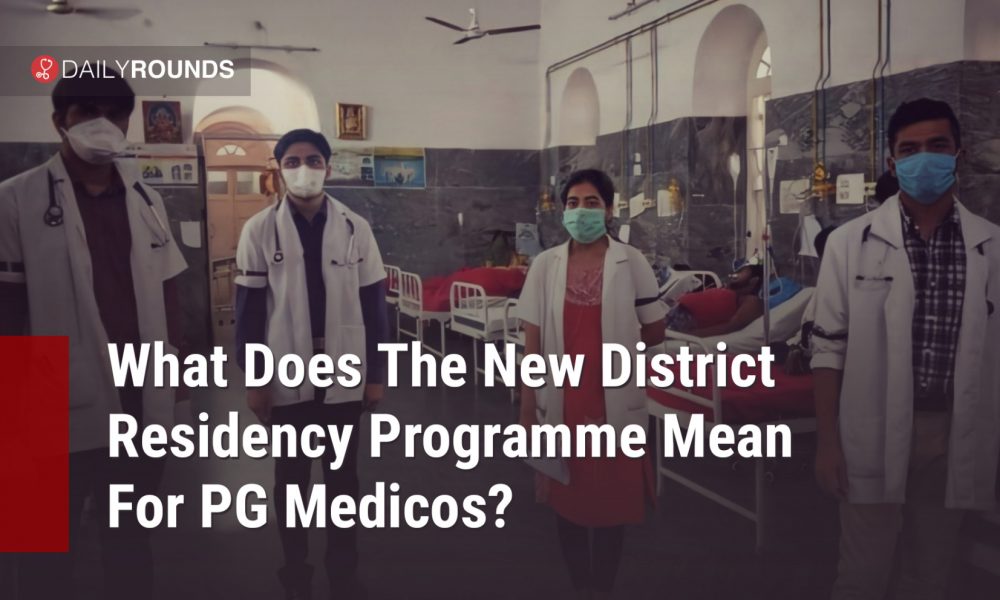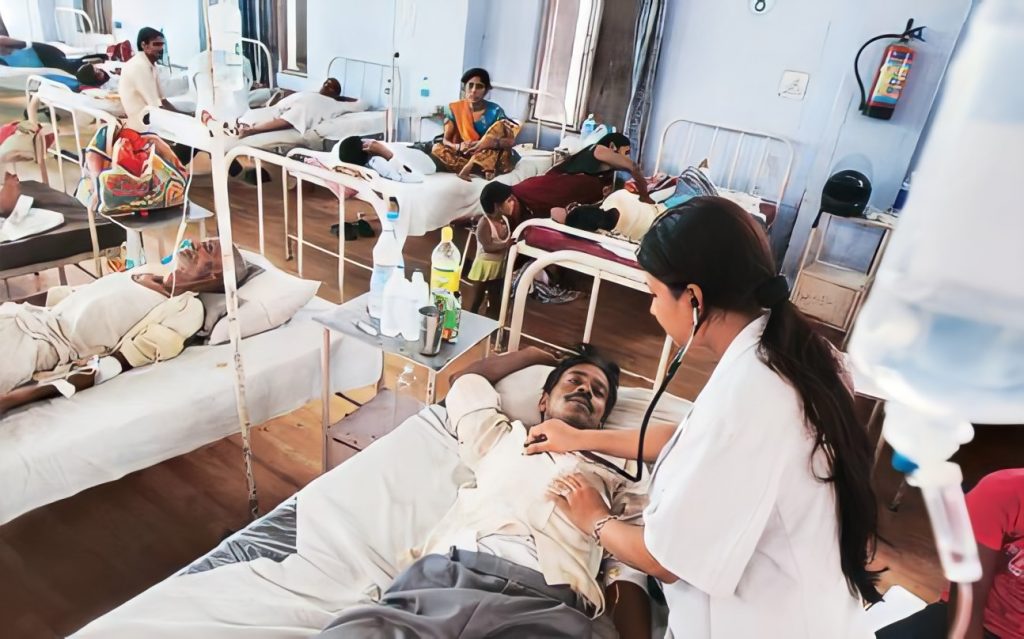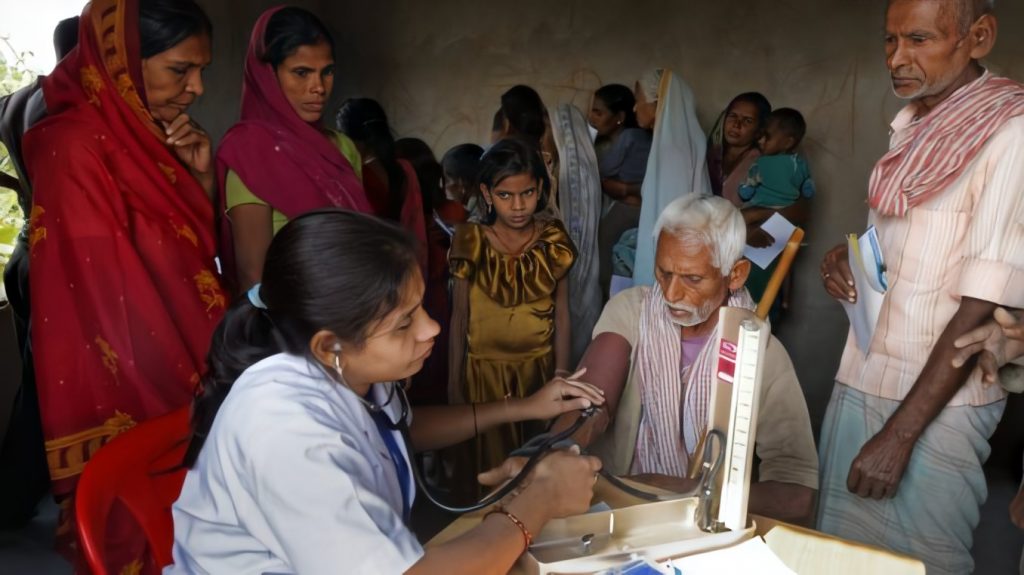
What Does The New District Residency Programme Mean For PG Medicos?
The post-graduate medical education in the country is all set for a radical change as the Board of Governors in Super-session of Medical Council of India have framed fresh rules for all PG students pursuing MD/MS in broad specialities in all medical colleges to undergo a compulsory residential rotation of three months in district hospitals or district health system as part of the course curriculum.
A gazette notification issued last week noted that “Such rotation shall take place in the 3rd, 4th or 5th semester of the postgraduate programme. This rotation shall be termed as ‘District Residency Programme’ (DRP) and the postgraduate medical student undergoing training shall be termed as a ‘District Resident’.” Let’s look into the details of the program.
Objectives of the District Residency Programme:
The main objectives of the District Residency Programme (DRP) are to:
- Expose the postgraduate students to the district health system and involve them in health care services being provided at the district hospital for learning while serving
- Acquaint the students with the planning, implementation, monitoring, and assessment of outcomes of the national health programmes at the district level
- Orient the students to promotive, preventive, curative, and rehabilitative services being provided by various categories of healthcare professionals under the umbrella of National Health Mission.
However, for the purpose of this program, a District Hospital shall be a functional public sector/government-funded hospital of not less than 100 beds with facilities/staff for the designated specialties at that level.
Training & Responsibilities of District Residents:

Clinical Specialities:
During this rotation, the District Resident will be posted with the concerned specialty team/unit at the District Hospital and will be trained under the overall guidance of the District Specialists. The District Resident will work under the overall directions and supervision of the District Residency Program Coordinator (DRPC). The clinical responsibilities assigned to the Residents would include serving in outpatient, inpatient, casualty and other areas, and encompass night duties.
Pre/Para Clinical Specialities:
Postgraduate students of pre/para clinical disciplines (namely, Anatomy; Biochemistry; Community Medicine; Forensic Medicine; Microbiology; Pathology; Physiology; and Pharmacology) will be trained by the District Hospital and Health System teams within the available avenues in coordination with the District Health Officer/Chief Medical Officer. They would be trained in and contribute to the diagnostic/laboratory services, pharmacy services, forensic services, general clinical duties, managerial roles, and public health programs, etc., as applicable. They may also be posted in research facilities, laboratories, and field sites of the Indian Council of Medical Research (ICMR) and other national research organizations.
Training & Certification
The quality of training shall be monitored by log books, supportive supervision, and continuous assessment of performance. The attendance and performance of District Residents shall be tracked by the District Residency Programme Coordinator (DRPC) of the District concerned, as well as and the parent Medical College through an appropriate electronic/digital or mobile-enabled system. Such monitoring systems shall also be accessible to the State/Union Territory Steering Committee and the National Coordination Cell.
In addition to this, the District Residents would remain in contact with their designated postgraduate teachers and departments at their parent Medical College by phone and e-communication for guidance, learning, and for being able to participate remotely in scheduled case discussions, seminars, journal clubs, thesis discussions, etc.
Satisfactory completion of the District Residency shall be an essential condition before the candidate is allowed to appear in the final examination of the respective postgraduate course. The District Residency Programme Coordinator (DRPC) shall issue a certificate of satisfactory completion of DRP and report on the performance of the District Resident on a prescribed format to the concerned Medical College and the Government of State/Union Territory.
Stipend and Leave for District Residents:
The District Residents shall continue to draw full stipend/salary from their respective medical colleges for the duration of the rotation, subject to the attendance record submitted by the appropriate district authorities to the parent medical college. Subject to exigencies of work, the District Resident will also be allowed one weekly holiday by rotation. They shall also be entitled to Leave benefits as per the rules and guidelines of the parent College / University.
In addition to this, the respective state governments shall provide appropriate amenities to the district Residents, including, suitable accommodation, transportation to the workplace (if quarters are far away), and security especially for lady residents amongst others.
The district residents will also get additional honorarium as a token of recognition for their contribution to the healthcare services of the States. Besides, the concerned governments may make provisions to incentivize postings to remote and difficult areas, and encourage volunteering by postgraduate students to serve at these places, said the notification.
What It Offers?

According to officials, the move will not only help ensure the availability of specialist doctors in rural areas across the country but will also help in better on-ground training of doctors.
“The scheme enables training of future specialists in settings of district hospitals where higher priority clinical conditions are dealt with. This makes the training more grounded, deeper and contextual. Equally importantly, the district hospitals will get strengthened for care with the deployment of speciality residents to team up with district specialist teams. Each district hospital in the country would eventually have four to eight residents at a time, thus augmenting the workplace leading to gains in quality and volume of care. It is a win-win program,” said NITI Aayog member Dr. V K Paul, who heads the MCI Board of Governors.
Apart from all this, the scheme is also likely to open up more PG seats in medical colleges across the country because a quarter of the PG batch will be away at all times once the programme starts. As a result, medical colleges will be allowed to apply for extra seats to compensate for reduced student presence on the campus.
“Medical colleges may send an application to the concerned authority for the enhancement of seats, as hospital work may be affected due to out-posting of students. Colleges can apply for it after one year of the implementation of the District Residency Programme,” the notification reads.
The Challenges in Front
The programme still remains a bitter pill to swallow for a small share of the medical fraternity. Former dean of academics at AIIMS, Dr. V K Bahl shared his concerns regarding the programme and said that “Without a monitoring mechanism in place, there’s always a possibility that those three months are underutilized.”

Our past experiences also throw light on the same issue. Over the years, when MCI was an autonomous body, it has been trying to have post-graduate students go for a rural stint. The Maharashtra Government even fixed an amount to be recovered from the students in case they fail to render services in rural hospitals. But it remained a total flop. Barring a few, nobody went to rural areas and rendered their services.
We can’t let history repeat because the nation is desperately looking for a way to resolve its chronic shortage of specialised doctors. The programme certainly looks good on papers as it is capable of creating a win-win situation for both medical students and the overall healthcare system across districts. Now it’s all about the implementation part alongside close monitoring and proper regulations.
Follow and connect with us on Twitter | Facebook | Instagram